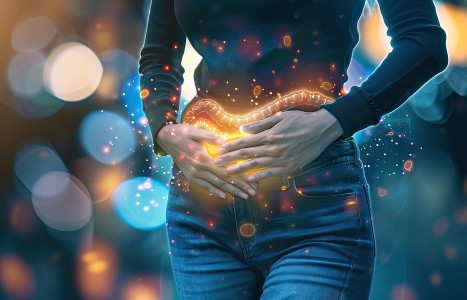The most important relationship I seek to nurture in the treatment room is the one a patient has with their own body. We live in a culture that teaches us to override pain, defer to outside authority, and push through discomfort. Patients often arrive hoping I can “fix” them, but the truth is, we can’t do the work for them. We can offer guidance, insight and support, but healing requires their full participation.
Stop Eczema Itch With Acupuncture
An estimated 15 million people in the United States suffer from eczema, which usually looks like dry, scaly red skin patches accompanied by intense itching. Standard treatment to reduce inflammation and itchiness can include corticosteroids, which have some serious side effects, including cataracts, glaucoma, gastrointestinal effects, hypertension, osteoporosis and weight gain.
Now, a group of German researchers from the Technical University of Munich may have an answer to provide relief from the itching.1 Thirty people with eczema were treated right after being exposed to an allergen such as dust mites or pollen. All patients went through three different test conditions. The first treatment condition was "point-specific" acupuncture targeted at areas designed to treat itchy skin (Quchi and Xuehai points). The second treatment condition was "placebo-point" acupuncture treatment where the points selected were not those used to treat itchy skin. The third test condition was no treatment following allergen exposure.
It turned out that the subjects all reported lower levels of itchiness after receiving the point-specific acupuncture compared to either placebo acupuncture or no treatment. Even more interesting, when they got a second exposure to the allergen after the point-specific acupuncture, their flare-ups were less severe. Lead researcher Dr. Florian Pfab concluded: "Acupuncture at the correct points showed a significant reduction in type I hypersensitivity itch in patients with atopic eczema."
Another similar study was done in Israel two years ago, looking at the effectiveness of herbal medicine and acupuncture in the treatment of atopic dermatitis (the most common form of eczema).2 In that study, 20 patients between the ages of 13 and 48 were given a combined treatment of herbs and acupuncture three times daily for 12 weeks. All subjects were assessed at weeks 3, 6, 9 and 12. At the end of the 12 weeks, patient assessment of itch improved by 45 percent and quality of life improved by 39 percent. In that second study, the researchers concluded, "The results of this study suggest that the combination of acupuncture and Chinese herbal medicine have a beneficial effect on patients with atopic dermatitis."
Reference
- Pfab F, Huss-Marp J, Gatti A, et al. Influence of acupuncture on type I hypersensitivity itch and the wheal and flare response in adults with atopic eczema - a blinded, randomized, placebo-controlled, crossover trial. Allergy. [Epub ahead of print]
- Salameh F, Perla D, Solomon M, et al. The effectiveness of combined Chinese herbal medicine and acupuncture in the treatment of atopic dermatitis. J Altern Complement Med. 2008 Oct;14(8):1043-8.


